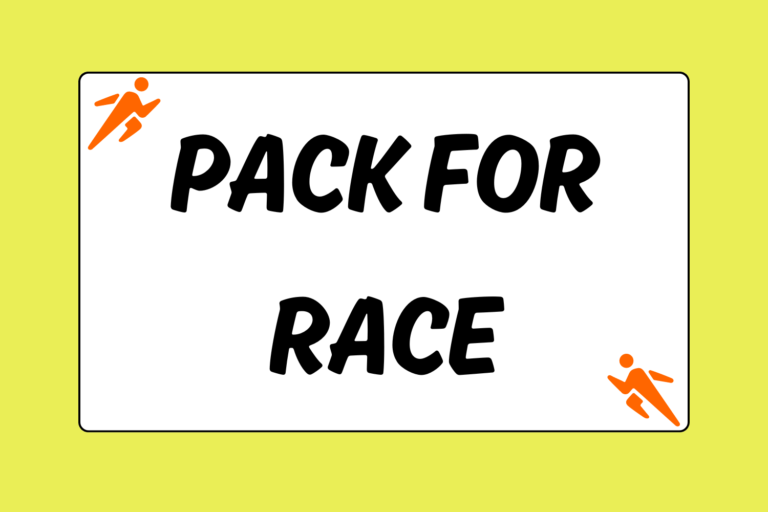Running a good marathon takes months of preparation. The miles, workouts, and strength training are all parts of a carefully executed plan, designed to get you to the start as fit as possible. But what happens when you cross the finish line?
Whether it was the perfect race or 26.2 miles of misery, completing a marathon is no easy feat, and your body and mind require a recovery as deliberate as your pre-race plan.
Your post-marathon plan should have two purposes:
- To recover without injury or residual fatigue.
- To return to training, motivated and energized.
This guide is designed to help you understand and structure the recovery process. Keep in mind that everyone’s ideal recovery approach could and should be a little different. So take the information and advice below and use it to structure the right post-marathon plan for you.
The Damage
Running 26.2 miles does not come without consequences. The pavement, distance and relative speed of the race can do damage to your body and overall well being if you don’t take the proper steps towards recovery as soon as you cross the finish line.
Colds or Illness
You are six times more likely than usual to get sick after a marathon. Stress hormones – which are released in the last stages of a marathon – suppress the immune system and make you more vulnerable to viruses and pathogens for up to 72 hours after the event. You will also be surrounded by the germs of thousands of people before, during, and after the race.
DOMS (Delayed Onset of Muscle Soreness)
DOMS manifests as muscle stiffness and soreness that usually hits 24 to 72 hours after the activity (in this case, a marathon) and can last anywhere from one to five days.
The soreness is not caused by lactic acid, as often thought, but by real, microscopic muscle damage. The small tears in the muscle fiber are caused by glycogen depletion, actual muscle degeneration, and/ or the constant muscle contraction that occurs while running – especially downhill – on already fatigued legs.
The pain is your body’s way of telling you to lay off the heavy training until the muscles are healed and the pain subsides. Until then, any hard running risks injury and further damage to the vulnerable area.
General Fatigue
Of course you’re going to be tired! During the marathon, you essentially run your body into an all around system depletion and it’s going to take some time and rest to rebuild.
Blisters or Foot Issues
When you take off your racing shoes, there is a pretty good chance you will have some gnarly blisters, dead toenails, or beginner bunions. And although the damage itself is temporary, running with foot pain almost always changes your stride to redistribute the weight to less sensitive areas. This overcompensation can lead to long-term, more serious injuries.
Post-Marathon Blues
Many runners experience a kind of post-race blues once they finish a marathon. The cause for the funk varies: Maybe you achieved a long-term goal and don’t know the next step; or maybe you’re depressed from months of training that ended on a sour note and a bad race.
The emotional letdown is actually caused by a depletion of choline – a precursor for mood-regulating neurotransmitters like dopamine and serotonin. Choline production is negatively affected during marathon-like efforts, which in turn, can cause low energy and depression. It does rebuild naturally, but may take a few weeks.
Fun Fact:
52,000:The average number of foot strikes, per person, during a marathon. Ouch!
The After Party
Here are a few steps to take immediately after you cross the finish line and throughout the day after the race:
Don’t Stop Moving
Marathon finish areas are filled with people sprawled on the ground, unable or unwilling to move another step. But as nice as it may seem, complete rest right after the race will only prolong the recovery time. Instead of completely shutting down right after the race, try walking around for 10 to 15 minutes within an hour of finishing and then again later in the afternoon. This will promote circulation, which will help the body heal.
Help Reduce Inflammation
To reduce inflammation, promote circulation, and minimize soreness try any (or all) of these tips:
- Soak in cold water for 5 to 15 minutes.
- Avoid hot tubs since the heat will actually encourage more inflammation.
- Take an oral anti-inflammatory.
- Get a massage or perform a self massage with a foam roller or similar tool.
Stay Warm
Cold baths are helpful in recovery, but make sure you stay warm before and after your icy soak. Have a change of clothes available after the race so you can change out of the sweaty race gear. Also try to move indoors if the weather is bad.
Refuel With Carbs and Protein
Consume as many carbohydrates as possible as soon as you can after the race. It is the best way to replace the depleted glycogen stores, which in turn, helps your muscles recover and your immune system bounce back.
Carbs are the No. 1 priority, but make sure to include protein. Carbohydrates fuel the muscles, while protein helps rebuild the fibers themselves.
Rehydrate
Drink both water and sport drinks or juice to rehydrate and replace the electrolyte/sodium losses that occur during a race. Your “drinking monitor” may be a little off, so make sure you hydrate until your urine is clear – regardless of how thirsty you may feel.
The First Week
The first week after a marathon is the most important time in terms of promoting full recovery. Here are some tips to ensure success:
Active Rest
Avoid any structured or specific training, but do stay active to work out the kinks and promote blood circulation. This may include walking, light lap swimming, or gentle stretching. Understand the totality of the comeback: Do not do any hard workouts, weight lifting, or strenuous activity during this first week.
Indulge
Eat whatever, sleep whenever, do whatever makes you happy or relaxed. You have earned couch potato status.
Eat Protein and Essential Minerals
As stated above, protein will help repair the muscles. Once the crucial carbohydrate period has passed (the first 24 hours after the race), rebalance your diet with food high in protein and other amino acids. It is also important to boost your immune system by taking vitamin C. This will help ward off a cold or illness, and the antioxidants will promote overall healing.
Pamper Your Body
Take the time to properly care for your aching body. Dip your feet in Epsom salts and warm water to prevent infection and promote healing, then apply Neosporin and Band-Aids to the open cuts or blisters. It is also important to elevate your legs whenever possible. This will force the bad blood out of your legs and encourage the circulation of new, nutrient-rich blood back into the muscles.
Conclusion
It may seem like a lot to remember, but marathon recovery should be about celebration, not stress. Many of the tips above are simply a gentle reminder to take care of yourself as diligently as you trained for the actual race. So sit back (legs up of course), chill out, and bask in your accomplishment.





